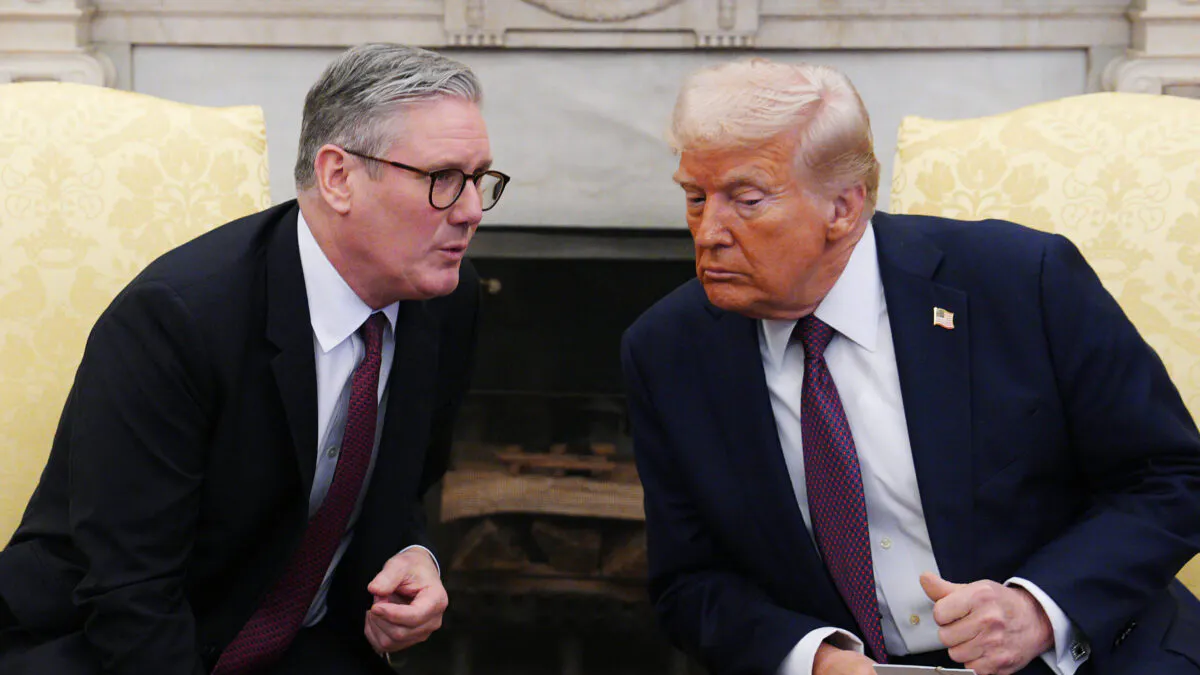The approval of leftist leaders in Canada, Australia, and the United Kingdom has surged since President Donald Trump took office in January and began implementing his economic and foreign policy agendas.
The Wall Street Journal reported on Thursday that the reaction to the beginning of Trump’s second administration has given new life to liberal leaders who previously looked destined for defeat in upcoming elections. Trump’s massive tariffs imposed on nearly every country in the world are the top issue that appears to be driving support for leftist leaders.
The biggest swing following Trump’s inauguration came in Canada, where the ruling Liberal Party appeared dead in the water until Trump imposed a tariff on Canadian goods and suggested making Canada the 51st state.
Trump’s policies and attitude toward Canada have appeared to turn the upcoming prime minister election on its head — shifting from a likely flip to the Conservative Party to potentially remaining in the hands of the Liberal Party and leftist Prime Minister Mark Carney. The Conservatives, led by Pierre Poilievre, were ahead of the Liberals by more than 20 points in the polls, but now the Liberals lead by around 4 points, according to the WSJ. Poilievre and his Conservative Party hope to gain back support among Canadians, who will go to the polls on Monday.
In Australia, which is holding elections on May 3, Left-leaning Prime Minister Anthony Albanese is now ahead in the polls by more than 10 points after trailing his conservative opponent, Peter Dutton, by six points in January. The jump in support for Albanese coincides with Australians losing trust in the U.S. government, according to polling results from the Lowy Institute. The think tank found that only 36% of Australians have any level of trust in the United States to act responsibly, the WSJ reported. That was down from 56% last year.
The United Kingdom’s Left-leaning Labour Party is still struggling with its approval rating, sitting at just 29%, but that’s an 8-point increase from February. The upward trend in approval for the British Labour Party followed Prime Minister Keir Starmer’s meeting with Trump at the White House in late February to discuss tariffs and the war in Ukraine. Starmer has vowed to “only strike a [trade] deal” with Trump “if it’s in the national interest.” Earlier this month, an Ipsos poll showed a 17-point drop in the number of Britons who agreed that the United Kingdom has a “special relationship” with the United States, down to 30%.
Conservative leaders in Canada and Australia are trying to navigate Trump’s policies as they seek to regain support ahead of their elections. Poilievre, a popular figure on the Canadian Right, has pushed “Canada First” campaign messaging, similar to Trump’s “America First” slogan. The Canadian parliamentarian has also amassed a large following among Canadian and some American conservatives for his viral critiques of the legacy media and former Prime Minister Justin Trudeau.
Despite his similarities to Trump, Poilievre has been careful to differentiate himself from the U.S. president and has strongly opposed Trump’s tariffs that are now affecting the Canadian economy, calling Trump’s move “historic mistreatment of Canada.” Poilievre’s strategy is showing signs of success, as the Conservative Party has regained some ground on the Liberals, according to a CTV News-Globe and Mail-Nanos poll released earlier this week. According to the survey, Conservatives have narrowed the gap from 5.6 points to 3.6 points.
Dutton, the Australian conservative candidate, has pushed policies similar to those implemented by Trump, such as seeking to radically cut government spending. Dutton, however, has called Trump comparisons a “sledge” used to attack him, adding that “the government doesn’t have a good story to tell.”

.png)
.png)

